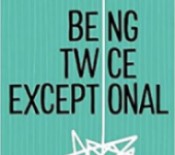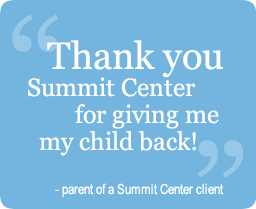Marginalization causes daily stress for persons who have intersectional traits on both ends of the spectrum of ability-dis/ability, also known as twice exceptional. For these autistic adults, support systems are minimal, research is thin, and understanding is spotty at best. In addition, most find their ability to mask their autistic traits minimizes how hard they are working to cope with the world. When the mask slips, others misjudge and often unfairly label them as arrogant, unfeeling, self-centered, or unreliable. They become exhausted with trying to explain to others why these perceptions are wrong. Many have given up on ever being fully understood and accommodated, let alone accepted and embraced by society.
As a twice exceptional person and autistic ally, I’ve been agitating for better understanding for nearly half of my life. Therefore, I wrote Being Twice Exceptional to help those outside the experiences of our community to better understand our lives. I’ve listened to many stories from exhausted people trying to succeed at work, get an education, or build a relationship. They wish people understood that managing time, communicating effectively, and deciphering the expectations of others can totally drain their energy. They must work exponentially harder to have that “heart to heart” talk, or follow multiple conversations in a meeting, or even do a grocery run. The stories in this book are written to both illustrate the struggles and to inspire advocacy from others.
But this book is mainly written for our community as the result of my ongoing effort to share the knowledge I have gained from its members. They have talked candidly about identity, sexuality, and finding love. They have shared work success and burnout, the benefits of intellectual prowess, and the joy of finally realizing your vocation. They offer truth about the pain of feeling like a social misfit, the stress of managing sensory overwhelm, and the loneliness of living without a partner. They shared insights about rationing energy, avoiding meltdowns, and embracing your authentic self.
Each chapter covers an aspect of life that brings unique challenges to twice exceptional people. It then offers suggestions around how to manage those challenges. A sampling of the chapters includes:
- Kenny’s journey from student to activist
- Xena exploring her sexuality and self-knowing
- Jax’s discovery of a hidden talent
- Tahnee creating a sensory sanctuary
- Bernie’s finding the love of his life
- Alden improving his life and health
- Bebe’s work to overcome trauma
- Reuben learning to regulate his emotions
The stories in Being Twice Exceptional are fictional adaptations of the beautiful lives of twice exceptional people I have been lucky enough to know. When people get to know each other and make connections around commonalities, stereotypes and prejudice tend to disappear. In reading these stories, I hope twice exceptional people recognize and celebrate themselves. I also want those outside our community recognize that we have many things in common. We might just need to navigate life in different ways.
Until the formal research catches up with the inherent wisdom of the people, I hope that our voices educate, entertain, and inspire. It has always been my goal to help everyone get to know the people in the twice exceptional community. We have many challenges and plenty of gifts. Ultimately, we are all just trying to figure it out, and my dream is that we motivate others to help us create a world that works for everyone.
Dr. Melanie Hayes provides counseling to children, teens, adults, and families at Summit Center’s Walnut Creek office. Dr. Hayes has made it her life’s work to help gifted and twice exceptional persons find their niche and work to their strengths. Dr. Hayes is founder of Big Minds, a school for 2e children, with sites in Pinole and Pleasanton, CA. Dr. Hayes book, Being Twice Exceptional is now available on Amazon, at Jessica Kingsley Publishers, or your local independent bookseller.
Reprinted from the JKP Blog.


